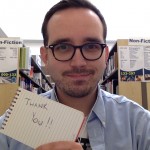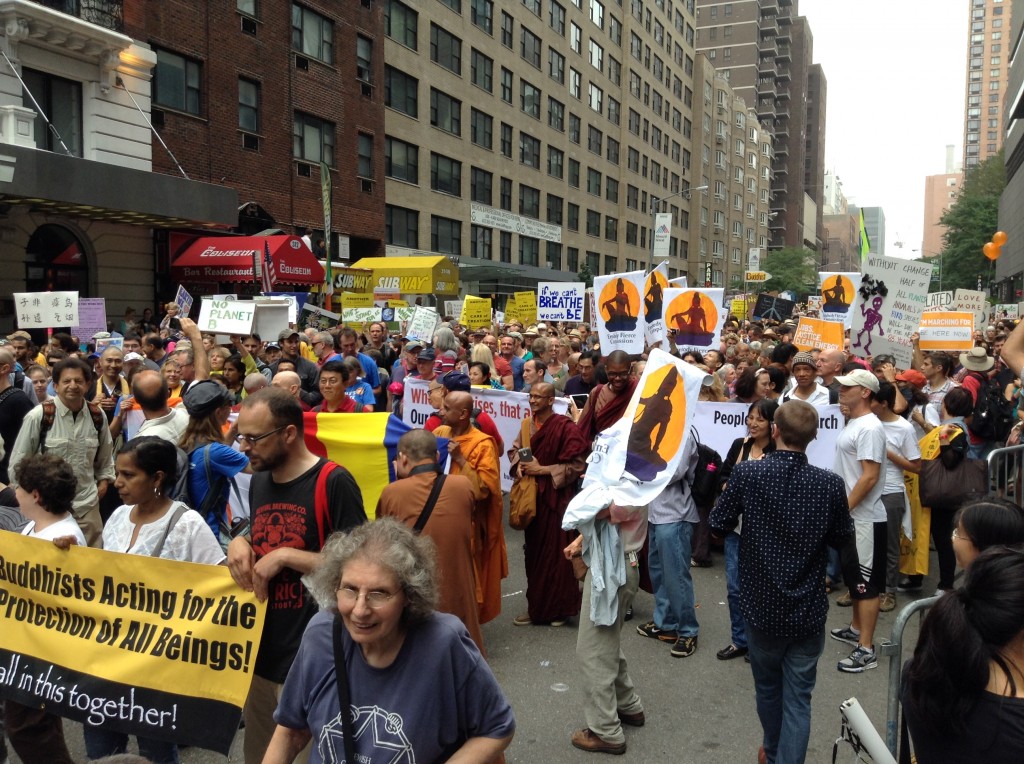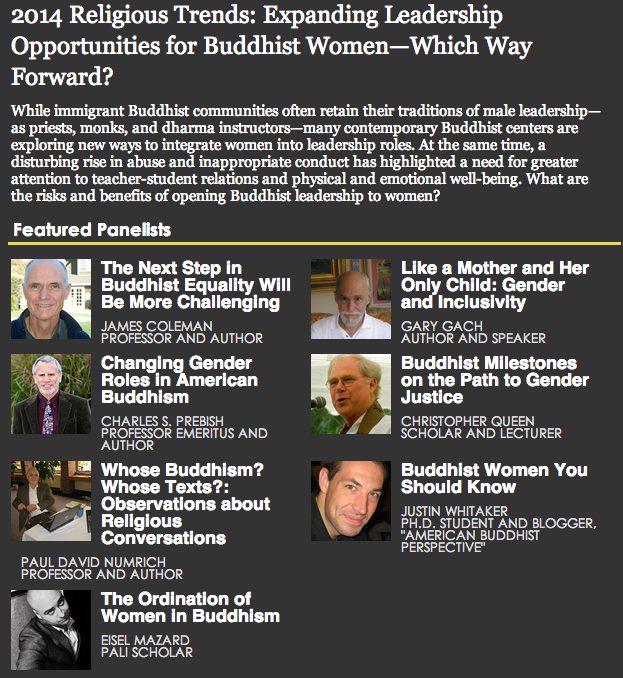Faithful America — an online community dedicated to “reclaiming Christianity from the religious right and putting faith into action for social justice” — has a petition on their website today entitled “Tell ESPN: Don’t Use the Bible to Gay Bash Athletes”. It reads:
When Jason Collins became the first openly gay player in the NBA, he emphasized the importance of his Christian faith in accepting himself and deciding to come out.
But within hours, ESPN sportscaster Chris Broussard characterized coming out as “openly living in unrepentant sin” and attacked Collins, saying “I would not characterize that person as a Christian because I don’t think the Bible would characterize them as a Christian.”
Shockingly, so far ESPN is standing by Broussard, describing his tirade as “a respectful discussion of personal viewpoints.” ESPN needs to hear immediately from thousands of Christians who are appalled that the network is allowing our faith to be wielded as a weapon of anti-gay hatred.
Sign the Petition:
Chris Broussard’s hateful attack on Jason Collins for being gay was an unacceptable misrepresentation of the Christian faith. ESPN must immediately suspend Chris Broussard and guarantee that their network will never again be used for gay bashing.
I signed the petition and then posted it on Facebook, where it generated a good deal of conversation. Some of it is worth discussing here, I think.
First, let’s talk about one critique that I agree with. One friend who commented wrote, “I find this use of the word ‘bash’ a little cavalier — and, of course, extremely unfair to people who have actually been gay bashed.” This is probably a fair point, and I wouldn’t necessarily object to a change in the language if it were up to me. I think Faithful America’s point could still be made, and made strongly, with a change of phrase.
Second, let’s talk about the “Christian” part of this issue. One comment referred to Broussard’s homophobia as “a common Christian belief.” To my way of thinking, it’s more like a common belief held by many, including quite a few (but certainly not all) Christians. I’m not sure how I feel about calling it “a common Christian belief,” though. For one thing, here’s what Jesus actually said about the matter. For another, it’s not just some Christians who share Broussard’s view; a lot of Jews, Muslims, Hindus, Buddhists, etc., think homosexuality is a sin too. In fact, the Pew Forum found that about 55% of all Americans — from all religious backgrounds — think homosexuality is a sin. Christianity is the majority religion in the United States, so its adherents tend to get more exposure. But it’s a prejudice that runs deeper than one particular religion’s teachings, I think. And one that persists among Christians despite the fact that Jesus never addressed the issue, and instead talked a lot about loving others (especially those not traditionally well-treated).
Moving on, another commenter asked, “Does saying that ‘homosexuality is wrong’ necessarily make you prejudiced? Is there a way to say ‘I think this is wrong’ without being hateful?”
Does saying “homosexuality is wrong” mean you are prejudiced? I think so. Would we be asking a question like this if somebody said simply and plainly, “I think the female gender is inferior” or “The white race is superior?” Probably not. But Broussard also said more than that: “If you’re openly living in unrepentant sin, whatever it may be … I believe that’s walking in open rebellion to God and to Jesus Christ.” Not only is that an expression of personal prejudice, but it’s also an awful thing to say. And I guess I missed the memo from ESPN explaining that it’s Broussard’s job to opine about homosexuality as a sports analyst. As a newsman, I would expect him to talk about the historic aspect of Collins’ announcement and what it means for the sports world — he’s the first player in a major American team sport to come out as gay — but not to use the network as a forum for sharing his beliefs about homosexuality. How is that sports analysis again?
In addition, Broussard seems to be cherry-picking his Christian ethics. If he’s going to be such a Biblical literalist, then shouldn’t he go all the way? If he covers football again (as he has in the past) without saying that every single player is committing “an open rebellion to God and to Jesus Christ” for handling pig flesh (which is forbade in Leviticus), then it sure seems like he’s just a guy who doesn’t like gay people, looking for an excuse to get a pass on that. Also: didn’t Jesus say something about not judging others?
Another comment was more personal: “I guess I would assume that you, Danny Fisher, a Buddhist chaplain…would be more sensitive than most to this issue. However, many of your criticisms of this guy’s religion and personal character have seemed, to me, like extrinsic criticisms, based on your political/ethical point of view and your understanding of the Bible, rather than attempting to understand his worldview and working from there.”
First of all, chaplains aren’t moral relativists. Second, I don’t necessarily think of Facebook posts as spiritual care. But going along with the premise for a moment… As a caregiver, I do think that I have a responsibility to point out the ways that inappropriately expressed beliefs affect others. It is not Broussard’s job as a sports analyst to share his beliefs about homosexuality; it seems to me that he simply took advantage of having a big microphone at his disposal. When that happens without ESPN bringing the hammer down, and saying clearly, “He should not have done that, and there will be consequences,” my fear, based on what I’ve learned about where hate crimes come from, is that this might make worse an unsafe environment for LGBT persons.
A while back, I shared here an open letter I composed to Mr. Neil Nguyen and the Little Saigon 2013 Tet Parade Committee in response to the committee denying the Partnership of Viet Lesbian, Gay, Bisexual and Transgender (LGBT) Organizations’ request to march in the 2013 Tet Parade. In that letter I pointed out the following:
The FBI’s most recent release of hate crime statistics (from 2011) shows a startling increase in hate crimes against the LGBT community. In fact, hate crimes based on sexual orientation now constitute the second most frequent type of hate crimes (behind only hate crimes based on race). It is worth noting, however, as the Southern Poverty Law Center has, that ‘most hate crimes are never reported to police and those that are typically are not categorized as hate crimes by local jurisdictions.’ (The FBI also does not yet track hate crimes based on gender identity or gender, though they will have to soon under the Matthew Shepard and James Byrd, Jr. Hate Crimes Prevention Act.) Additionally, the Human Rights Campaign notes that, like racial and ethnically motivated hate crimes, hate crimes against the LGBT community ‘are more frequently committed against persons than property.’ Indeed, even before the rise in hate crimes, 54% of LGBT people expressed concern about being the victim of a hate crime, with 20% of gay men and 27% of lesbians saying that were ‘extremely concerned’ … Clinical and forensic research by people like UCLA psychologist Edward Dunbar has done much to teach us about what influences hate crime offenders, and factors might include such things as upbringing and levels of pathology. In addition, University of Massachusetts-Amherst psychologist Ervin Staub has indicated that a climate in which others are excluded or marginalized or made scapegoats for larger problems ‘may give [hate crime offenders] permission to have and express [aggressive and antisocial] feelings… People who have had painful experiences and no opportunities to heal tend to be more hostile in general, and they more easily channel their hostility toward groups the society is also against.’ It is no real surprise, then, that the National Institute of Justice has found that a full one-quarter of all hate crime offenders ‘commit hate crimes to protect their neighborhood from perceived outsiders.’
It seems to me that what Broussard said at best does nothing to help protect a vulnerable community, and at worst might contribute to intensifying a climate in which LGBT persons are already susceptible to violence as it is. To say things like “[who you are is an] open rebellion to God and to Jesus Christ” on a major TV network’s airtime (especially when that’s not what you’re there to do) seems to me pretty reckless and completely irresponsible. And when ESPN does not respond in a meaningful way, but instead calls what Broussard said merely “a distraction”, that seems to me profoundly irresponsible as well. They need to say loudly and clearly, “That was reckless, and we deplore what was said in the strongest possible terms. In addition, there will be consequences for Broussard and others who take advantage of their position in our network to express such beliefs on our airtime.”
If you agree, you can sign Faithful America’s petition here.












